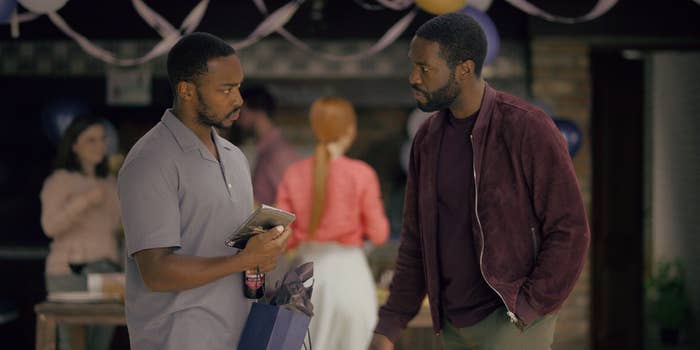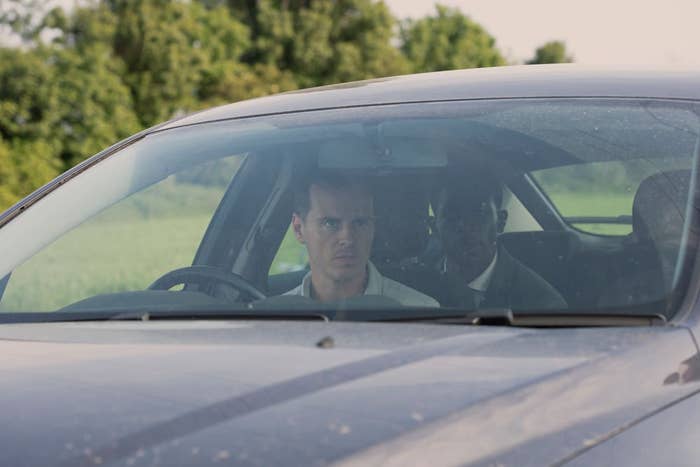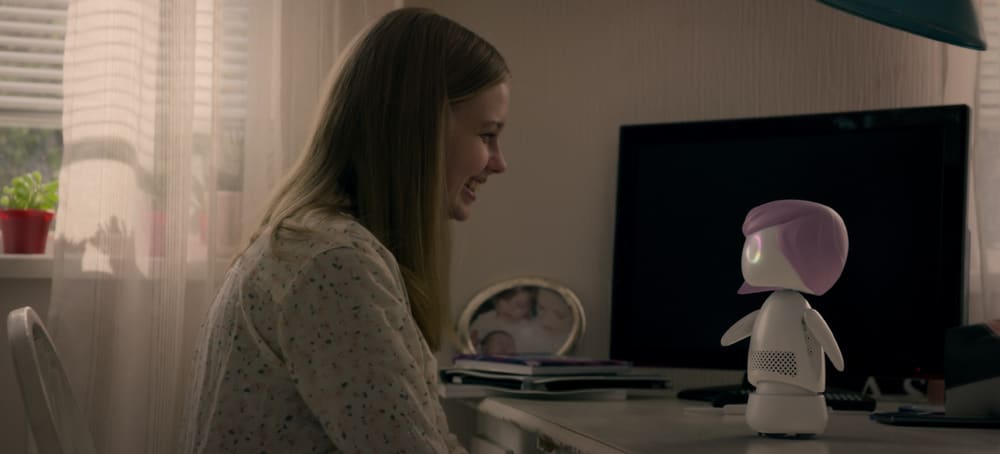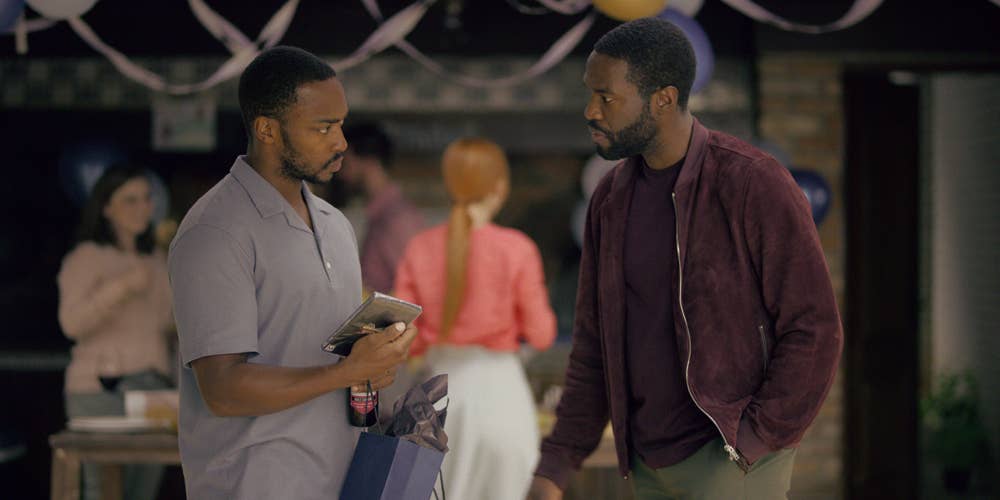
The best offering in Charlie Brooker’s long-awaited new Black Mirror loudpack, which finally dropped this morning at 3AM EST, is the least showy. For Season 5, the series has reverted to the brevity favored by the BBC that it initially debuted with—only three episodes in the set. Short orders may be in Black Mirror’s favor; Seasons 1 and 2 remain the strongest the show has been to date, while doubling the order for Netflix left Seasons 3 and 4 with new classic episodes and unmemorable duds alike. This new season may not boast an early all-timer like “San Junipero” or “USS Callister,” but in the quality to quantity ratio alone, this is the dystopian thriller’s best season since aligning with Netflix Originals.
That’s a far better result than the Season 5 trailer initially suggested. Each episode of Black Mirror is best-experienced cold—I rarely even read the loglines or synopses. As such, creator/writer Charlie Brooker is one of those self-aware auteurs whom you can trust to deliver a cleverly-edited trailer that’ll stave off the thirst for new episodes without actually giving the game away for each respective narrative. Each of these three installments features delightful leftfield turns, but the most pleasant surprise is in “Smithereens,” because to be frank, in that aforementioned trailer it looked as if it might be a new worst.
A fun fact about the anthology series commonly shared between viewers is the meaning behind its title, which Brooker confirmed in a 2011 op-ed for The Guardian: “If technology is a drug then what, precisely, are the side effects? The 'black mirror' of the title is the one you'll find on every wall, on every desk, in the palm of every hand: the cold, shiny screen of a TV, a monitor, a smartphone.” With the series mission statement being so front and center then, one might say that an episode centered around a misanthrope driven mad by the suffocating proximity of screen addiction might be needlessly on the nose, most generously, or trash, rote and indicative of Brooker running on E, most cynically.

Sandwiched between “Striking Vipers,” which boasts the series first all-black leading cast and “Rachel, Jack and Ashley Too,” the much-ballyhooed Miley Cyrus Episode, “Smithereens” is, improbably, the best of the three. The series protagonist, played with frayed livewire aplomb by Andrew Scott, is indeed...concerned...with society’s screen jones and the Silicon Valley overlords who keep upping our dosage. And he has a specific target to direct his rage at. I won’t go into any further details; I won’t even say who plays the Jack-esque tech bro he seeks an audience with.
It’s not even as if the source of Scott’s app rage is all that unpredictable. What matters is how it unfolds—tensely, well-paced, and perhaps most crucially, casually hilarious in lieu of all that. An episode that seemed stale at first glimpse instead manages to straddle the edge of self-parody, instead landing as an emotionally affecting fourth-wall break. If it were joyless, that might not have been the case. The mania and haplessness in Scott’s performance is just as darkly comedic as it is unnerving; a rant he goes on about interns during a generally serious moment is impossible not to laugh at, as is a crucial phone picture he shares not long after.
That same unexpected delight kicks in about halfway through Miley’s ep, “Rachel, Jack and Ashley Too.” Anyone apprehensive that her appearance wouldn’t amount to much more than stunt casting a celebrity most of us are tired of already to begin with needn’t worry. Ask me again next week, and I may have this one over “Smithereens,” honestly.

Taken together, whether the decision to scale the episode order back to the pre-phenomenon days of yore was intentional or just, as Brooker says, a consequence of the man hours put into the interactive loosie “Bandersnatch,” Season 5 really does feel like a Black Mirror that’s back to its basics. Whereas other episodes in the Netflix seasons aimed for prestige and scale or aesthetic departures, the priority on challenge subsequently undermined the quality.
“Striking Vipers,” “Rachel,” and especially “Smithereens” are quaint compared to what Brooker has delivered on Netflix’s dime so far; the latter’s success is indicative of the season’s success overall. None are blockbusters, but they ultimately feel richer than a lot of the unmemorable fare padded around say, “USS Callister,” innovative on story if not scope. In a year where he could’ve been overshadowed by the return of his spiritual forebear, Brooker rose to the challenge by going small, re-earning the title as Rod Serling’s true successor in the process.

